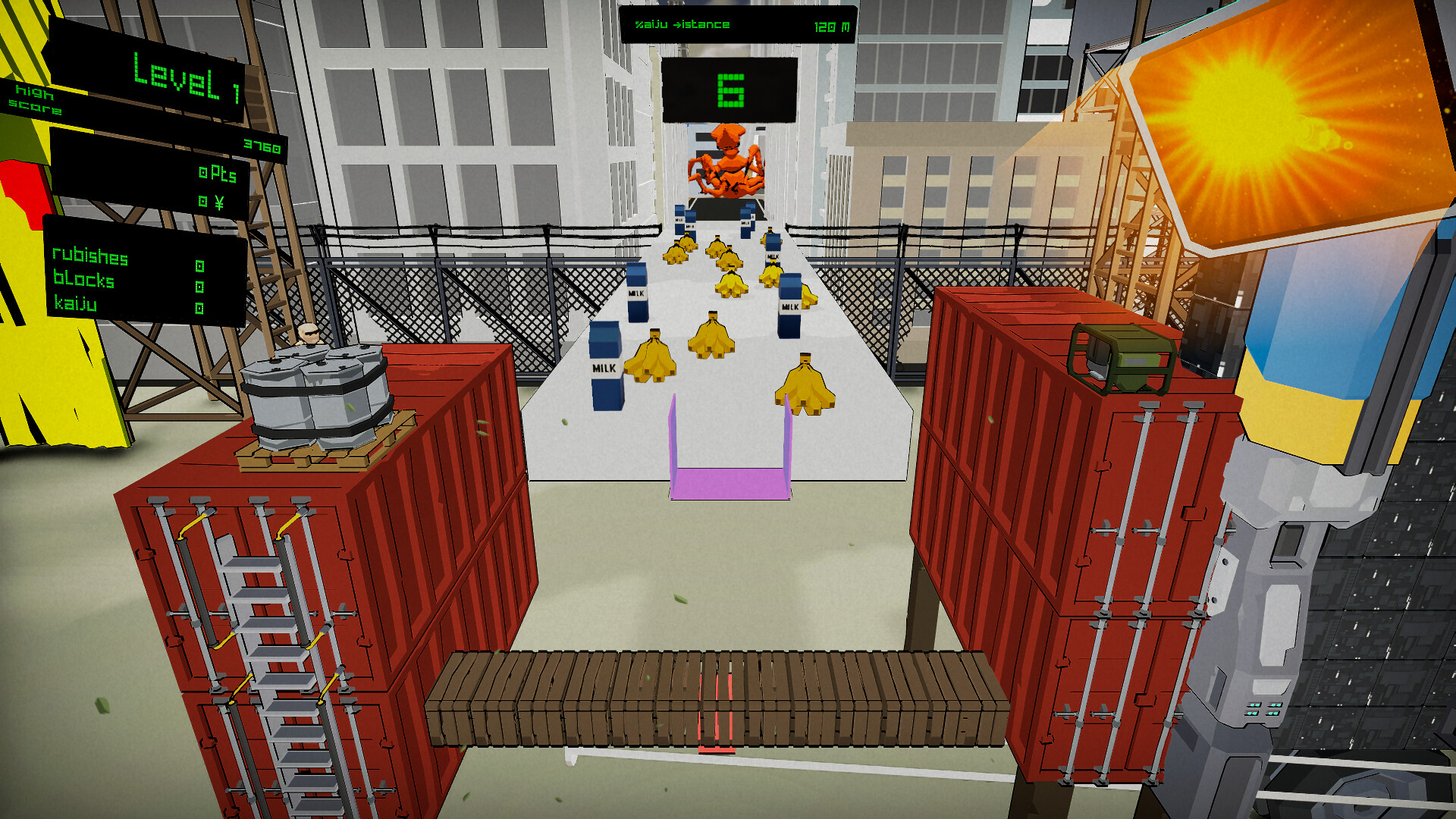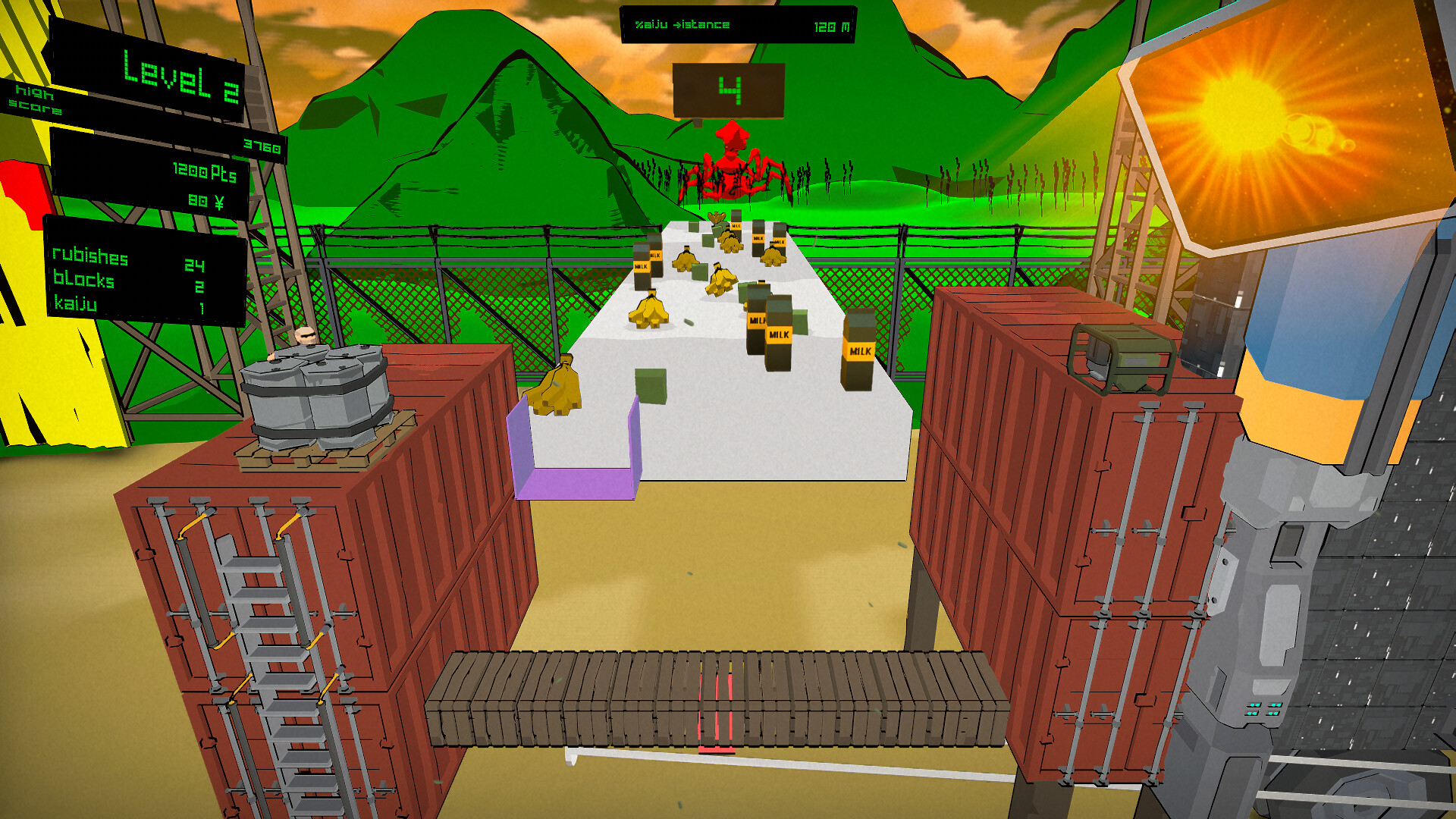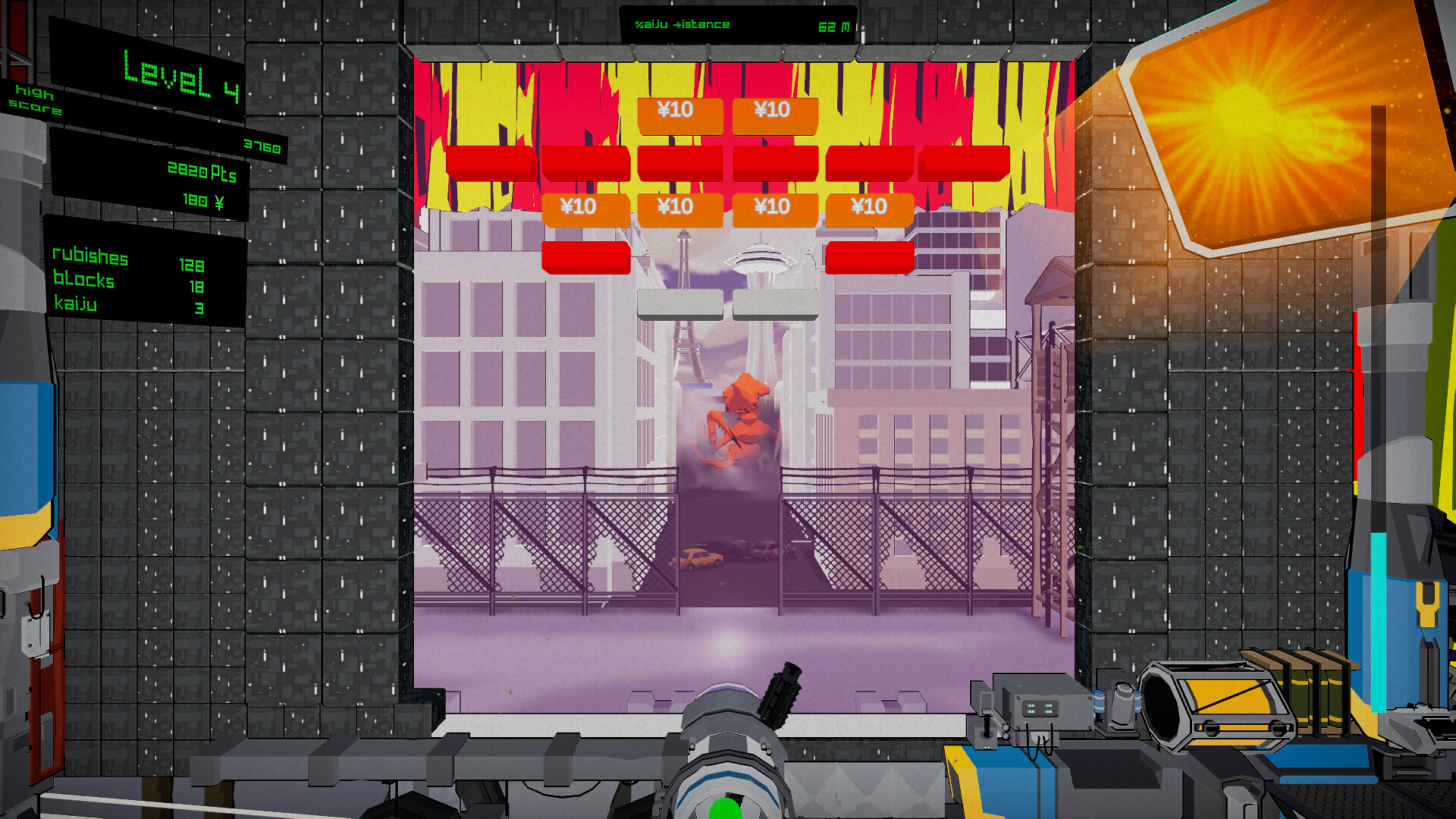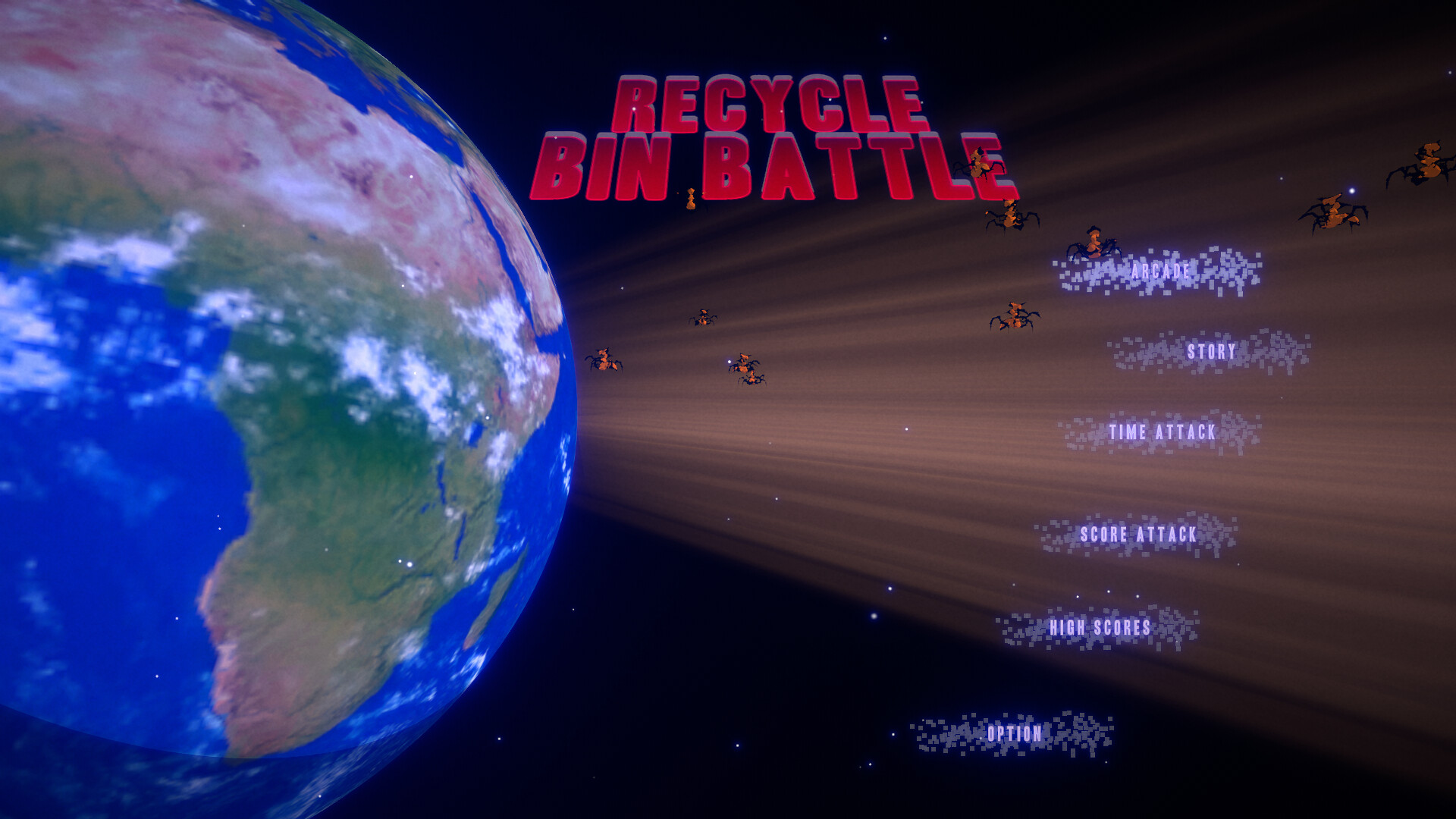Description
Reycle Bin Battle is an arcade puzzle game based on 3 differents gameplay.1- Catch Rubishes tumbling down a machine and arrange them in type and color to make them disappear and make ball for second part.
2- Use ball to break invaders defenses and get energy in a breakout-like.
3- Use energy to shoot Kaiju and save humanity.
Story
In a near futur, Humanity exploited 98% of earth ressources.It's the moment choose by unknown force coming from space to attack Human species.
Humanity decide to use last ressources to design a weapon working with rubishes, the Recycle Bin Weapon. Now it's time to fight !
Features
ARCADE GAMEPLAY : 3 Games in 1MAKE MATCH 3 COMBO : use rubishes to create ball.
BREAKOUT : use ball to break blocks, destroy hostile defense and get energy !
ARCADE SHOOTER : use energy to shoot Kaiju and save humanity
4 GAME TYPES : arcade, story, time attack, score attack.
As I, Youri Terdik, sat down to create a video game aimed at raising awareness about ecological risks, I couldn't help but feel a wave of doubt wash over me. The irony was stark: here I was, about to use a medium that is itself a significant consumer of energy and resources, to preach the gospel of sustainability. The questions swirled in my mindwas I contributing to the very problem I was trying to solve? Was there a way to reconcile this paradox?
Imagine yourself on stage, under the spotlights, ready to deliver a crucial message about the ecological crisis. But wait, those spotlights, they consume a crazy amount of energy, don't they? It's a bit like creating a video game to raise awareness about ecological risks. Greta Thunberg reminds us: every click, every download, every hour of play consumes electricity, often produced by power plants that spew CO2. It's a show, sure, but a show that has an environmental cost. So, how can we keep the show going without burning the planet? That's where the first act of our paradox lies.
Behind the curtain, there are the backstage areas, and in the backstage areas, there is the waste. Vandana Shiva talks about these mountains of electronic waste, the remains of our computers, consoles, and servers. Each component has a limited lifespan, and once obsolete, it becomes toxic waste. It's as if, after each performance, we threw our costumes and props into a landfill. Not very eco-friendly, is it? Yet, that's what happens with technology. So, how can we create without contributing to this infernal cycle? That's the second act of our paradox.
The audience is won over, they applaud, they are sensitized. But is that enough? **Naomi Klein** warns us: awareness does not guarantee action. It's as if, after a poignant show about climate change, the audience goes home and continues to live as if nothing happened. Video games can reach millions of people, but how many of them will actually change their habits? That's the third act of our paradox: the gap between awareness and concrete action.
But wait, there's a twist! As Bill McKibben says, sometimes you have to use the tools of the system to change it from within. Video games are a powerful, popular medium, and they can reach people who would never read a book about ecology. So, why not use this medium to spread our message? It's a bit like putting on a comedy show to talk about serious topics. We laugh, but we also think. That's the fourth act of our paradox: using the means to deliver the message, even if the means are not perfect.
Video games are one of the most used media in the world today. To give you an idea of the scale, Steam, the online video game distribution platform, had over 132 million monthly active players in 2023. On the console side, Sony announced that the PlayStation 5 has surpassed 32 million units sold, while the Nintendo Switch has reached 111 million units sold. These figures show just how much video games have become a mass phenomenon, reaching all age groups, from children to seniors.
In conclusion, creating a video game to raise awareness about ecological risks is a bit like putting on a comedy show about a serious topic. It's paradoxical, but it's also a unique opportunity to reach a wide audience and inspire positive actions. So, curtain up, the show must go on! But this time, let's try to do it in a more sustainable way.
Minimum Setup
- OS: Ubuntu 12.04 (64-bit)
Recommended Setup
- OS: Ubuntu 14.10 (64-bit)
[ 6487 ]
[ 2143 ]
[ 1910 ]


























